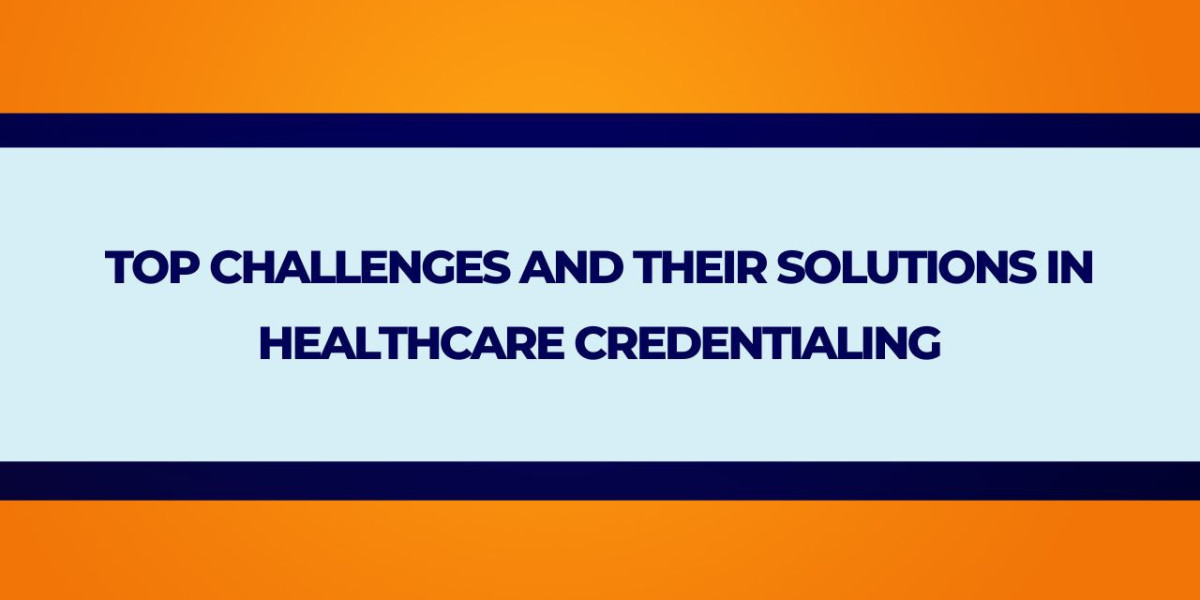Getting certified in healthcare can be tough. It's a big deal for medical places to follow all the rules. Sometimes, applications get rejected because they're missing stuff or have mistakes. If we don't look at the data carefully and manage the process well, it can cause even bigger problems.
Mistakes happen in any process, but in healthcare, they can be really bad. For instance, if nurses don't get certified properly, they might lose their jobs. Also, if there are errors in the certification process, it can hurt the reputation of the healthcare facility. In simple terms, nobody wants to deal with the money and legal issues that come from a messed-up healthcare certification process.
In this article, we'll talk about some of the big challenges with healthcare certification. And also will throw light on the importance of the Medical Billing and Credentialing Services that can help you overcome these issues and can help you handle them better.
Common Problems with Credentialing
Staying Updated with Information
Many medical groups struggle to get the right details from applicants. It's said that more than 85% of submitted applications have mistakes, missing parts, or wrong info. Even small changes, like moving or updating contact info, need to be confirmed in the CAQH system.
Having missing or wrong information can really mess up the already tricky and time-consuming healthcare credentialing process. This gets even worse when healthcare workers switch jobs frequently. To prevent issues during the process, healthcare groups need to stay updated with any changes that happen.
Time Consuming
Getting healthcare credentials takes a lot of time. It can take up to 90 days just to review your application. If other people like contract negotiators and health insurers are involved, it might even take 6 months. This long wait can slow down how healthcare organizations work.
Ensuring Compliance
Making sure you follow all the rules is a big part of the credentialing process. Each state has its own laws and guidelines that you need to follow. Also, national organizations like CAQH have their own rules you must meet. This can make things complicated.
Healthcare rules and standards are different in each state. These rules are always changing, which makes things even harder. To keep up with all these changes, it's important to use a reliable credentialing service or system.
Changing the Platform
As your credentialing program gets bigger and needs more things, you might have to connect with other systems or change the whole assessment system. But if your platform has a bunch of stuff in it, like set questions or prompts, and it doesn’t follow the rules, moving it can be really hard without losing something. So, a lot of groups end up stuck with old systems that make it hard to do medical credentialing.
Keeping Healthcare Providers' Information Safe
Background checks are a must during the credentialing process. They help confirm if the candidate has the needed skills for patient care. To go through this process, you must submit important documents like licenses, work history, and education records.
Privacy is crucial here. The certification body needs a full background check. If you don’t provide all the required information, your application may be rejected. You'll need a reliable system to keep all this data updated and safe from prying eyes. However, many companies don’t have the right platforms to protect such vital information.
Top Ways To Tackle Challenge With Medical Credentialing
Partner With The Third Party Medical Billing Company
Healthcare practices can hire experts to handle credentialing and enrollment tasks. These professionals are skilled in checking provider data and backgrounds accurately.
When practices outsource these tasks, they benefit from a smooth enrollment process. The experts follow clear steps, use advanced technology, and stay updated on health plan rules. This helps prevent mistakes and ensures enrollment happens on time, reducing financial and compliance risks.
Outsourcing companies often have strong connections with health plans. This speeds up the enrollment process, usually taking only 60 to 90 days. Quicker enrollment means less chance of losing money from delayed billing and lets healthcare providers start serving patients sooner.
Focus on State Rules
Make sure you understand the rules in your state for healthcare. Each state has different rules, so get help from experts who know them well. They can help you follow the rules smoothly.
Check your state's rules for:
Licenses
Certifications
Education requirements
Use Credentialing Platform Technology To streamline The Process
Utilize Credentialing Platform Tech to Make the Process Smoother
Modern tech and innovation now allow companies to automate healthcare credentialing. Look for a healthcare credentialing solution that can:
• Cut down on the work for your employees.
• Slash the time for training new hires.
Save time so you can focus on growing your business. The cost of adopting this tech might be high. It's better to outsource your medical credentialing services.
Conclusion
Healthcare credentialing can be tough. Some medical groups don't have enough people or money to handle it well. But you can make things easier by hiring credentialing experts.
We understand how annoying the process can be. That's why we offer medical credentialing services to help ease the stress. Our system is fully automated. It keeps you updated in real-time about your healthcare credential application. Plus, it sends you alerts when your documents are about to expire. This helps make sure your clinic can keep treating patients legally.
We also offer insurance medical credentialing services. These are available for both individual doctors and big medical groups.






